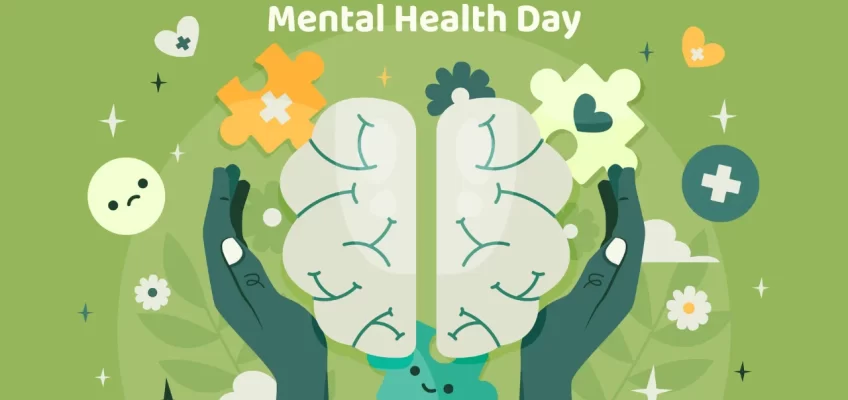As children, so much of our well-being is connected to that of our parents. Our parents’ love, support and guidance help us develop and grow into healthy and independent people. But, one aspect of childhood well-being that is often not spoken about is how the mental health of parents and caregivers impacts the mental health of children. As we commemorate World Mental Health Day, here is some information about how parents who struggle with their mental health can support their children’s well-being.
We live in stressful times, and many adults may find their high levels of stress lead to more serious mental health problems like anxiety, depression or burnout. While we navigate these difficulties, we must be aware of how these struggles may impact our children. This awareness can lead to us taking better care of ourselves, and enable us to act in ways that help our children.
An American study found that 1 in 14 children has a caregiver with poor mental health. Untreated mental illness in a home can often lead to an unpredictable and inconsistent home environment, which in turn can increase the chances of mental illness in children. Mental illness puts additional stress on marriages as well as the ability to parent, and all this added stress can unintentionally harm children in the home.
The first and most important thing you can do for your child if you are experiencing mental health challenges is to seek help. Treatment will look different for every person, but it could include medication prescribed by a mental health professional such as a psychiatrist, or seeing a therapist or psychologist to support your mental health. There is no shame in admitting that you need support with your mental health, and taking care of yourself is a crucial part of also taking care of your children.
Some other protective factors that parents can put in place to help their children include:
- Open communication – Share age-appropriate information with children about the parent’s mental illness or the struggles they are experiencing. Children should know that nothing that is happening is their fault.
- Outside support – If possible, a strong family support system is crucial to raising healthy children. This does not have to refer to a traditional family setup. Step-parents, grandparents, aunts and uncles, and close family friends can all offer support.
- Therapy – While therapy can play an important role in helping the parent become mentally healthier, it can also be very useful in helping the children process what is happening around them and build their mental resilience. Both family therapy and individual therapy can be helpful.
- Build healthy coping skills – Healthy coping skills, such as those taught in the H.E.L.P – Helping Kids Cope training, teach children to respond in healthy ways to difficult or overwhelming feelings.
- A strong relationship with a safe adult – A safe and trusted adult, whether it be a parent, family member or even a teacher, can help build a child’s sense of security as well as their self-esteem.
- Keep children involved with friends – Make sure your child remains involved with friends. Set up play dates or encourage them to take part in sports or other activities at school.
Struggling with your mental health does not make you a bad parent, and by being mindful of the effect that your struggles have on your children, you can create a healthy and supportive environment in which they can thrive while you get the help you need.


Leland3511
Good https://t.ly/tndaA